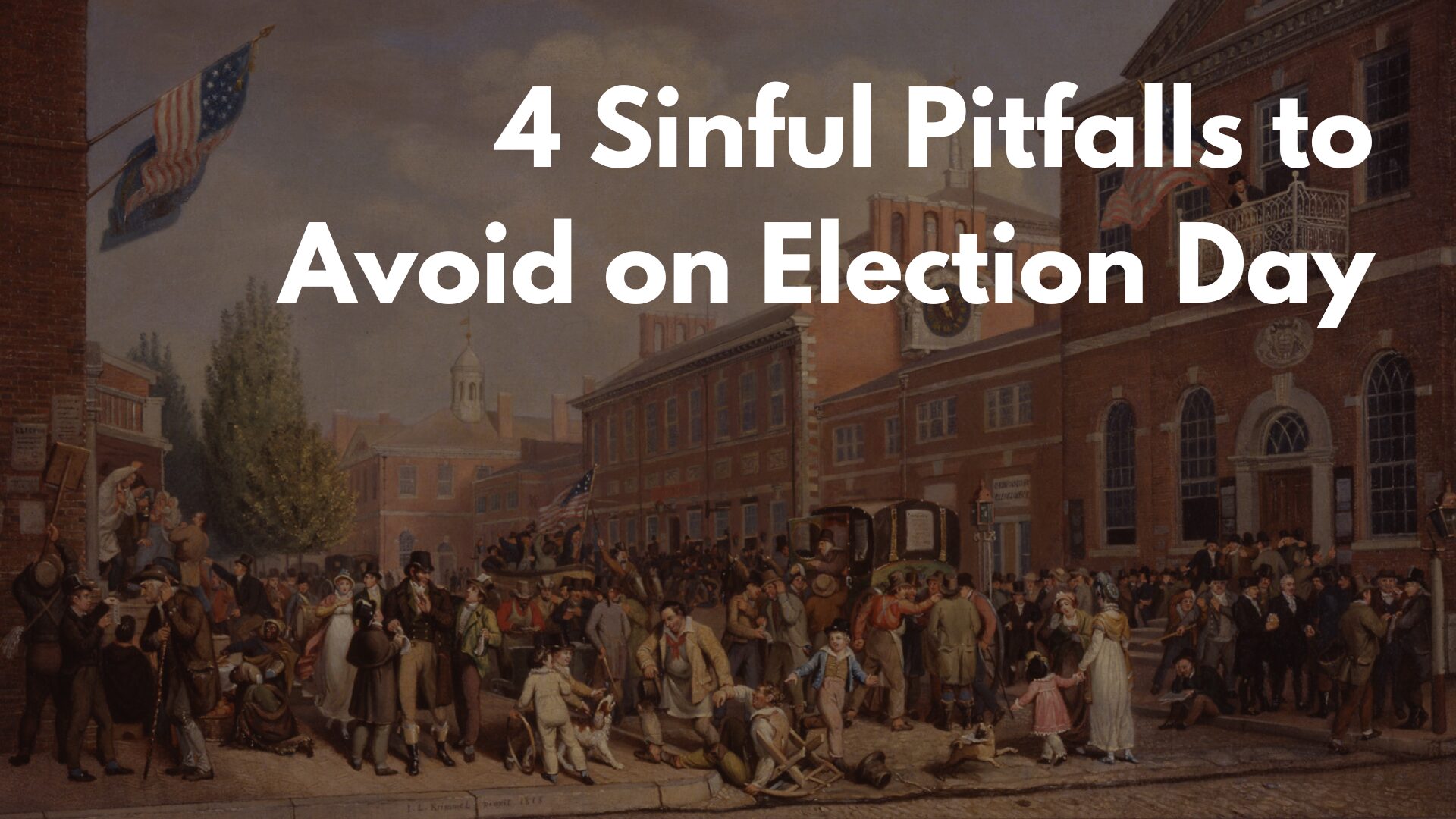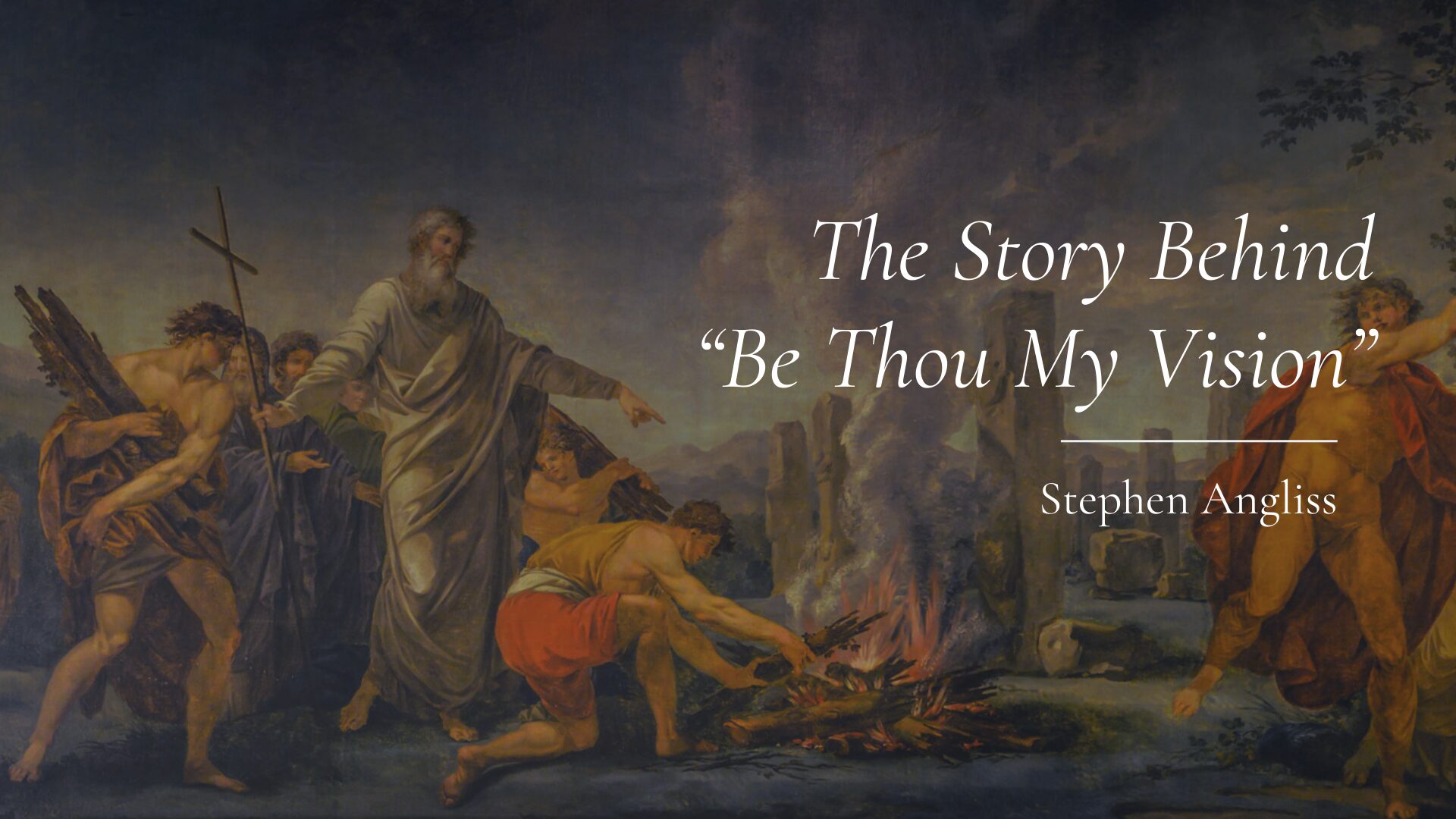“That Christ should clothe Himself with our flesh, a piece of earth which we tread upon. Oh infinite humility! Christ’s taking our flesh was one of the lowest steps of His humiliation. He humbled Himself more in lying in the virgin’s womb than in hanging on the cross. It was not so much for man to die, but for God to become man was the wonder of humility.” Thomas Watson, A Body of Divinity
As Kimmie and I walked down the aisles of the mall, shopping to pick-up last-minute Christmas gifts, I could not help but notice the music in the background. “Oh, come let us adore Him…” “Oh praise His name forever…” “Christ the savior is born…”.
These are the kind of words you expect to hear at church, but not at a mall. Even more amazing, the artists singing them were not Christian artists, but secular pop-music stars. How incredible that every December, even the most self-loving, sinful, secular celebrities belt out words of worship to Jesus Christ!
The Reason for the Season?
A common trope around the holidays is to remember the “reason for the season.” Most of us have seen A Charlie Brown Christmas enough times to know that Jesus is the correct answer. But this Christmas, I would like to propose a more specific reason for the Christmas season. The point of Christmas is not just to remember that God became man by being born as a baby, but to worship God because of that fact. Worshipping Christ because of His birth, not just acknowledging Christ’s birth, is the true meaning of Christmas.
Worship in the Birth Accounts
But what is worship? We often associate worship with Sunday service or a station on the radio. Most Christians know that they should worship but are unsure of how to worship. In the two Christmas accounts found in Matthew 1-2 and Luke 1:5-2:40, worship plays a central role. Not only does Scripture structure the Christmas account around worship songs (Mary’s Song [Lk. 1:46-55], Zechariah’s Song [Lk. 1:67-79], Angels’ Song [Lk. 2:14], Simeon’s Song [Lk. 2:29- 32]), but Mathew and Luke repeatedly use two different words to describe the kind of worship occurring at the first Christmas.
Because the Bible chooses to make worship a central focus of Christmas, so should Christians. By understanding the way Matthew and Luke describe worship in their Advent accounts, believers today can better understand how to worship Christ at Christmas, and every other season of the year.
(1) Pροσκυνέω: Worship as Humbling Oneself
The most common word used for worship in the Christmas accounts is προσκυνέω (proskuneo). It occurs in Matthew 2:2, 8, and 11 and means to prostrate oneself, or to bow down oneself before someone else. Today, we struggle to understand the significance of bowing down. Most of us would never lay ourselves face-flat on the floor, even if meeting a President or member of the Royal family.
In ancient times, the ground was associated with grime, death, and uncleanliness. Foot-washing was a lowly servant’s task (John 13:1-5). To place one’s entire body, including the face, on the dirty surface before a person expressed a desire to humble oneself. It acknowledged that the person before the worshipper was so great, that the only reasonable response was to become like the dirt. When the Magi—likely from Babylon and well-acquainted with royalty (Dan. 2:48; Matt. 2:1), came to the boy Jesus, Matthew says they “fell down and worshipped him.”
How to Humble Yourself
So too, Christians are called today to worship Christ by humbling themselves. Christians do this in two primary ways: prayer and loving others. Prayer teaches believers to spiritually prostrate themselves before the Lord by reminding them that all good things come from God (Jas. 1:17), and that like a child to a father, Christians should bring their desires to the Lord (Jas. 1:5; Lk. 11:9-13). The physical act of bowing one’s head and closing one’s eyes, although not necessary to prayer, helps instill this worshipful notion (Lk. 8:13-14; Matt. 6:5-9).
Similarly, loving others, especially fellow believers, reminds the Christian to think less of himself or herself and to see others with the same compassionate mercy that Christ sees them. In the words of Paul to the Philippians,
“Do nothing from selfish ambition or conceit, but in humility count others more significant than yourselves. Let each of you look not only to his own interests, but also to the interests of others. Have this mind among yourselves, which is yours in Christ Jesus, who, though he was in the form of God, did not count equality with God a thing to be grasped, but emptied himself, by taking the form of a servant, being born in the likeness of men.” Philippians 2:3-7
When we lovingly serve others, we live out the story of Christmas. Just as Christ humbled Himself to love others, so too can we worship God by imitating this humble love to those around us.
Practically Living Out Pροσκυνέω Worship
This Christmas, instill worship in your holiday season by leading your family in regular prayer. Teach your children to ask God for their own desires, as well as for the needs of others. Worship this December by also making an extra effort to humbly serve others. As a family, make a meal for a homebound neighbor, serve at a local Christian ministry, send a Christmas Shoebox through Samaritan’s Purse. Honor the newborn King by imitating His humility.
(2) Aγαλλιαω: Worship as Rejoicing
Matthew most often uses προσκυνέω to describe worship (a fitting word for a Gospel about a King), but Luke’s favorite word for worship in his Christmas account is αγαλλιαω (agalliao), which means to be glad, to rejoice, or to exult.
This is the fun one! Luke uses it to describe Mary’s joyful reaction to being chosen by God (Lk. 1:47). The unborn John the Baptist leaps for joy when in presence of the unborn Savior (Lk. 1:44). Gabriel tells Mary that because of her baby, many will rejoice (Lk. 1:14). This is the kind of joy you feel when the Seahawks score a game-winning touchdown. It is the kind of joy experienced when you and your spouse discover you are pregnant after years of trying. It is the kind of joy that makes you sing, cry, jump in the air, and pump your fist. To worship in this way means to be completely consumed by the goodness of something, to enjoy it for its own sake, and to express it with your entire being.
Do you Rejoice During Christmas?
Do you display to God, your family, your church family, and to non-believers this kind of joy? December is full of stresses. Higher bills, busier weekends, and shortened stretches of daylight all contribute to a sense of “bah humbug,” but Christ has scored the winning touchdown! The world has received a positive pregnancy test! Paul put it this way to the Christians in Galatia,
“In the same way we also, when we were children, were enslaved to the elementary principles of the world. But when the fullness of time had come, God sent forth his Son, born of woman, born under the law, to redeem those who were under the law, so that we might receive adoption as sons.” (Galatians 4:3-5)
J.R.R. Tolkein called Christ’s birth the Eucatastrophe of human history, a “good catastrophe.” The world was held captive in its own sin, but like a cavalry on the hill, or a wide receiver down the sideline, at the perfect moment Christ came to rescue the world. Christmas is more than cute, it is victorious!
Practically Living Out Aγαλλιαω Worship
This Christmas season, worship by expressing joy in Christ’s victorious coming despite your current defeating circumstances. Make music a priority. Sing carols with your kids in the car. Sing joyfully on Sunday mornings. Wish the gal at Safeway a Merry Christmas. Be like Jimmy Stewart at the end of It’s a Wonderful Life and tell others the reason for your joy, not because you have a new lease on life, but because you have been given a new life in Christ (Col. 3:1-11). The world was dead in its sin, but, in the words of Charles Wesley, Christ was born that, “men no more may die!”
Conclusion
There is a crisis of worship in the Church. No amount of new pop-worship songs can fix it. This is because worship is more than a song, more than a face on the floor, and more than a shout. Worship is a heart that sings in thankfulness, a heart that falls on the floor in humility, and a heart that shouts for joy in exultation (Matt. 15:18; Ps. 24:4; 1; Chron. 16:10). Use Christmas as a developmental season to grow a heart of worship within you and your family. Use the holiday traditions as teaching tools to turn the heart to Christ (Deut. 6:7-9). Don’t just remember Christ as the reason for the season, worship Him because of it.
“We needed a Father, but He did not need sons. To give us Christ is more than if God had given us all the world. He can make more worlds, but He has no more Christs to give.” Thomas Watson, A Body of Divinity.
Resting in Him,
Pastor Stephen





